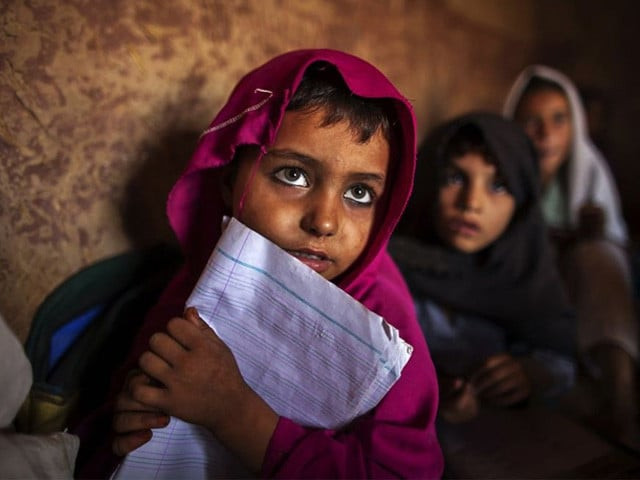According to a UNICEF report, around 22.8 million children between the ages of five to16 are out of school in Pakistan. Unsurprisingly, these kids can neither read nor write, as a result of which they are labelled as illiterate or uneducated. Some scholars believe that such labelling is unjustified because children do not stay out of school purposely or willingly. Their socio-economic conditions or even geographical locations don’t allow them to join a school. Therefore, children have not failed to reach school; the school has failed to reach these children.
The solution suggested in this case is a concept known as ‘de-schooling’, which is defined as ‘the process of adapting to a less formal education where children often take control of what and how to learn’. This refers to alternative modes of learning. Although such modes of learning already exist in Pakistan, out-of-school children cannot benefit from them due to lack of awareness, language barriers, and seemingly no financial rewards.
Initially, Austrian philosopher Ivan Illich invented the concept of de-schooling in 1971. He stated in his book that de-schooling ‘allows the learner to choose what they will learn, from whom they will learn, and why they will learn’. Some researchers believe that initiatives such as Khan Academy and Peer 2 Peer University (P2PU) exemplify de-schooling. Additionally, free massive open online courses (MOOCs) offered on platforms such as FutureLearn, Coursera, Edx and others are alternatives to school-based education. Even in the context of Pakistan, Sabaq.pk and other digital platforms are offering content which is accessible to anyone with a stable internet connection. However, thousands of children still cannot benefit from them.
Despite the fact that these resources are just a click away, millions of children are still unaware of them. Many children living and working in urban centres do not know about these platforms, let alone those living in rural areas. As a result of this gap, they cannot make use of such vital platforms. However, even if these children were to have knowledge of these modes of learning, they would still need some technological assistance to learn through them. In this regard, small scale awareness seminars can be arranged on tehsil levels to better reach these children. Furthermore, some hands-on workshops can be conducted so that children can learn how to access material through smart phones.
Apart from lack of awareness, language is another big barrier to overcome. Although some of the content on the aforementioned Pakistani digital platforms is in Urdu, the website navigation and a lot of other details and instructions are in English. This makes the content inaccessible in the first place. Additionally, the psychological fear of English spoken among other students keeps them from further exploring these websites. Translating the websites in Urdu or a local language can help children navigate through the tools easily with little or no technological or otherwise outside assistance.
More importantly, children spending time on learning through these channels will eventually be beneficial for their household incomes. Especially in rural areas and low-income households, children are generally not encouraged to seek education or any kind of activity without a purpose of earning. In such situations, they can never get an education, no matter how convenient it is. Not a single child will invest time in doing something that does not have financial rewards. After all, their families rely on them to provide for the household.
Ultimately, in my opinion, the idea is to incentivise learning by giving monthly scholarships to those who show a proficiency in a certain skill or in a subject. Their proficiency can easily be tested through annual or semi-annual exams in local schools or vocational centres.
Post COVID-19, we have seen how fluid education can be. Traditional ways of learning and attending schools in-person is no longer compulsory in order for children to learn. Online classes can do for children as much or if not more than having to spend hours inside a school. Thus, children can truly benefit from e-educational platforms if the government thinks seriously about educating all the children of this country.
In conclusion, our educational infrastructure will take years to develop if we want 22.8 million out-of-school children to be in school. De-schooling can be the way forward. With wonders of technology and so many digital resources available, we need to do very little to make schools reach these children instead of asking children to come to school.


1662190872-0/kasiddiqui-pic30kb--(1)1662190872-0.webp)
COMMENTS
Comments are moderated and generally will be posted if they are on-topic and not abusive.
For more information, please see our Comments FAQ